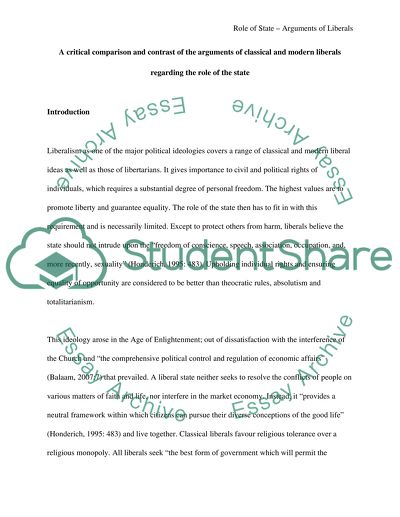Cite this document
(“Critically compare and contrast the arguments of classical and modern Essay”, n.d.)
Critically compare and contrast the arguments of classical and modern Essay. Retrieved from https://studentshare.org/miscellaneous/1552808-critically-compare-and-contrast-the-arguments-of-classical-and-modern-liberals-regarding-the-role-of-the-state
Critically compare and contrast the arguments of classical and modern Essay. Retrieved from https://studentshare.org/miscellaneous/1552808-critically-compare-and-contrast-the-arguments-of-classical-and-modern-liberals-regarding-the-role-of-the-state
(Critically Compare and Contrast the Arguments of Classical and Modern Essay)
Critically Compare and Contrast the Arguments of Classical and Modern Essay. https://studentshare.org/miscellaneous/1552808-critically-compare-and-contrast-the-arguments-of-classical-and-modern-liberals-regarding-the-role-of-the-state.
Critically Compare and Contrast the Arguments of Classical and Modern Essay. https://studentshare.org/miscellaneous/1552808-critically-compare-and-contrast-the-arguments-of-classical-and-modern-liberals-regarding-the-role-of-the-state.
“Critically Compare and Contrast the Arguments of Classical and Modern Essay”, n.d. https://studentshare.org/miscellaneous/1552808-critically-compare-and-contrast-the-arguments-of-classical-and-modern-liberals-regarding-the-role-of-the-state.


